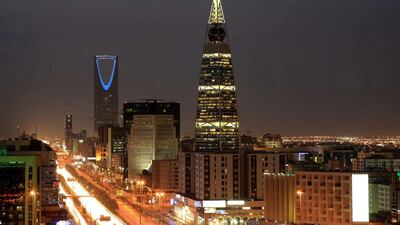There have been quite a few changes in Saudi Arabia over the past few months. King Salman’s accession to the throne in January was followed by a reshuffle of cabinet positions and a change in the line of succession. The escalation of the situation in Yemen has brought changes in defence policy and there has been closer cooperation between Saudi Arabia and other Gulf Cooperation Council countries including the UAE. One of the most significant changes, however, is on the economic front and it occurred this week with the opening to foreign investors of the Saudi stock exchange, the Tadawul. This move, which was foreshadowed last year, will have important implications for Saudi Arabia and the region.
The Tadawul is by far the largest bourse in the Middle East, and the seventh largest in the world, so foreign investors have long been keen to have direct access. Yesterday, the market was opened to investors with more than $5 billion (Dh18.37bn) in assets under management, and the initial response was positive.
Foreign observers have praised the strength of the Saudi regulator, the Capital Market Authority, and the generally high level of corporate governance in the kingdom. The participation of the overseas institutions, which will mean the flow of billions of dollars in foreign capital into Riyadh, should ensure greater transparency within public companies. It should also ensure less volatility on the Tadawul, which has endured dramatic rises and declines in recent years. The next step is its classification as an emerging market from its current status as a frontier market. This is expected to happen within the next two years, and analysts say that should lead to many more billions of dollars in investment.
For Saudi Arabia, the move is an essential part of the diversification of its economy, an issue already being addressed in this country. The UAE’s three stock exchanges – and now the Tadawul – which allow varying levels of foreign investment, advertise the determination to ensure strong and balanced growth.

